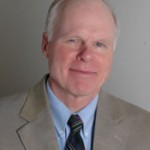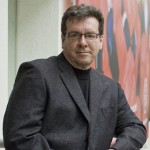Podcast: Play in new window | Download
Subscribe: Apple Podcasts | RSS


We talk with scientist Colin Ellard about [amazon-product text=”YOU ARE HERE: Why We Can Find Our Way To The Moon But Get Lost At The Mall” type=”text”]038552806X[/amazon-product].
And urban geographer Rutherford Platt tells us about [amazon-product text=”The Humane Metropolis: People And Nature in the Twenty-first Century City” type=”text”]1558495541[/amazon-product].
The Polish-American scientist and philosopher Alfred Korzybski is famous for his dictum, “The map is not the territory”. It was a warning against confusing the abstraction, or representation, of a thing, for the thing itself. And it’s an apt warning for us modern humans, who seem ever more connected to abstract space, like maps and the digital domain, and ever less connected to our real environment.
It wasn’t always so. Older human cultures, like the Inuit, the Australian Aborigines, and the Kung! people of the Kalahari desert are exquisitely tuned to the signals of the natural world.
[amazon-product align=”left”]038552806X[/amazon-product]
Colin Ellard says our capacity to both disconnect from and be attuned to where we are has to do with the way our minds work. As a scientist, he studies how people act when they confront problems of space, both in the real world and in virtual reality at the University of Waterloo’s Research Lab for Immersive Virtual Environments (RELIVE). His fascinating book on our relationship to space is called YOU ARE HERE. He says, while we’ve gained much ease from modern technology, we’ve also fallen prey to much dis-ease, from our alienation from the real places in which we are embedded. And, he says, it threatens our very survival.
[amazon-product align=”right”]1558495541[/amazon-product]
Urban geographer Rutherford Platt is the founder of the Ecological Cities Project at the University of Massachusetts, Amherst. He’s edited a collection of cities on how to make cities more liveable and sustainable, called [amazon-product text=”THE HUMANE METROPOLIS: People and Nature in the Twenty First Century City” type=”text”]1558495541[/amazon-product], which:
“explores the prospects for a more humane metropolis through a series of essays and case studies that consider why and how urban places can be made greener and more amenable. Its point of departure is the legacy of William H. Whyte (1917-1999), one of America’s most admired urban thinkers. From his eyrie high above Manhattan in the offices of the Rockefeller Brothers Fund, Whyte laid the foundation for today’s “smart growth” and “new urbanist” movements with books such as The Last Landscape (1968). His passion for improving the habitability of cities and suburbs is reflected in the diverse grassroots urban design and regreening strategies discussed in this volume.”

One thought on “Human Spaces and Liveable Cities”
Comments are closed.